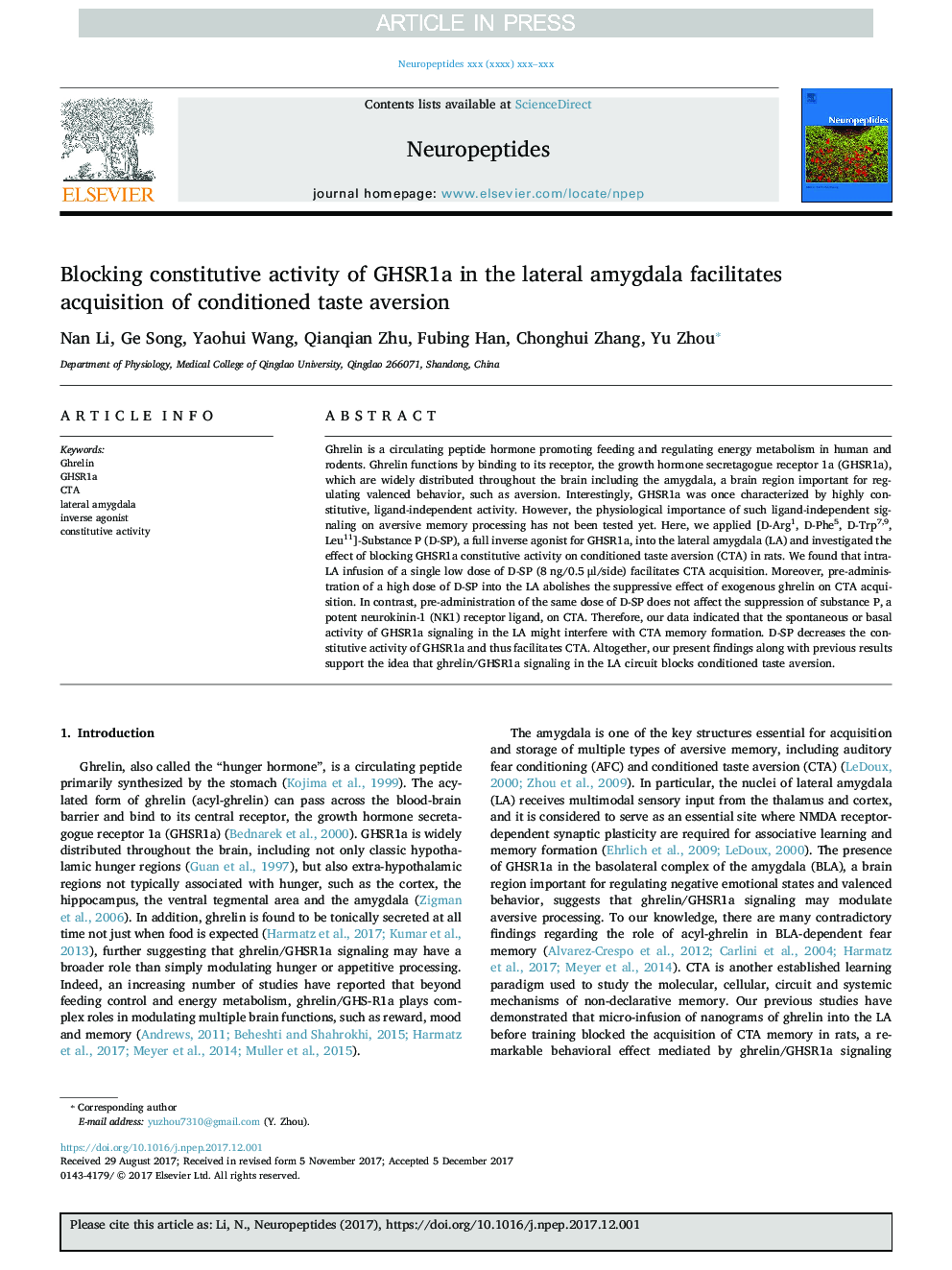| Article ID | Journal | Published Year | Pages | File Type |
|---|---|---|---|---|
| 8633274 | Neuropeptides | 2018 | 6 Pages |
Abstract
Ghrelin is a circulating peptide hormone promoting feeding and regulating energy metabolism in human and rodents. Ghrelin functions by binding to its receptor, the growth hormone secretagogue receptor 1a (GHSR1a), which are widely distributed throughout the brain including the amygdala, a brain region important for regulating valenced behavior, such as aversion. Interestingly, GHSR1a was once characterized by highly constitutive, ligand-independent activity. However, the physiological importance of such ligand-independent signaling on aversive memory processing has not been tested yet. Here, we applied [D-Arg1, D-Phe5, D-Trp7,9, Leu11]-Substance P (D-SP), a full inverse agonist for GHSR1a, into the lateral amygdala (LA) and investigated the effect of blocking GHSR1a constitutive activity on conditioned taste aversion (CTA) in rats. We found that intra-LA infusion of a single low dose of D-SP (8 ng/0.5 μl/side) facilitates CTA acquisition. Moreover, pre-administration of a high dose of D-SP into the LA abolishes the suppressive effect of exogenous ghrelin on CTA acquisition. In contrast, pre-administration of the same dose of D-SP does not affect the suppression of substance P, a potent neurokinin-1 (NK1) receptor ligand, on CTA. Therefore, our data indicated that the spontaneous or basal activity of GHSR1a signaling in the LA might interfere with CTA memory formation. D-SP decreases the constitutive activity of GHSR1a and thus facilitates CTA. Altogether, our present findings along with previous results support the idea that ghrelin/GHSR1a signaling in the LA circuit blocks conditioned taste aversion.
Related Topics
Life Sciences
Biochemistry, Genetics and Molecular Biology
Endocrinology
Authors
Nan Li, Ge Song, Yaohui Wang, Qianqian Zhu, Fubing Han, Chonghui Zhang, Yu Zhou,
